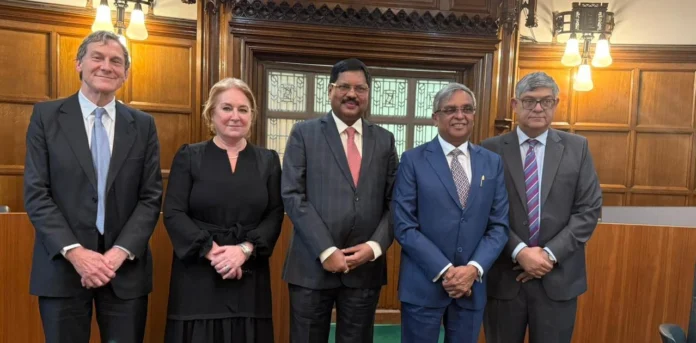Chief Justice of India BR Gavai has said that the Supreme Court has always been prompt in taking immediate and appropriate measures to address the instances of misconduct and corruption surfacing within the judiciary.
Speaking during the UK Supreme Court Roundtable titled ‘Maintaining Judicial Legitimacy and Public Confidence’ on Tuesday, the CJI said that no matter how robust a system may be, it was still susceptible to issues of professional misconduct.
Such occurrences impacted public confidence negatively and led to erosion of faith in the integrity of the system as a whole, he observed, adding that instances of professional misconduct and corruption have sadly surfaced even within the judiciary.
The CJI said that whenever such instances came to light in India, the Supreme Court took immediate measures to address the allegations of judicial impropriety, while ensuring transparency and integrity in the process.
The CJI’s remarks hold greater significance in the backdrop of Justice Yashwant Varma, currently serving as a judge of the Allahabad High Court, is likely to face impeachment proceedings soon.
Justice Varma was earlier indicted by a Supreme Court-appointed three-judge panel, formed to probe the alleged recovery of a huge stash of cash from his official residence in Delhi, while he was serving as a judge of the Delhi High Court.
CJI Gavai also highlighted the proactive steps taken by the Indian judiciary to build public trust.
Referring to transparency initiatives, he said the Apex Court judges have started voluntary disclosure of their assets. As public functionaries, judges were accountable to the people, he noted.
Stressing on the importance of accessibility and public communication, the CJI said all Constitution Bench hearings at the Apex Court were live-streamed.
Speaking about the e-SCR portal, which offered free access to Supreme Court judgments, CJI Gavai said the initiative greatly benefitted law students, researchers and citizens by enabling one-click access to court rulings.
He also stressed on the importance of keeping the process of judicial appointments free from executive influence. The CJI said there may be criticisms of the Collegium system, but any solution must not come at the cost of judicial independence.
Noting that legitimacy was not commanded but earned, the CJI observed that in today’s digital era, where information flew freely and perceptions were rapidly shaped, the judiciary must rise to the challenge of being accessible, intelligible, and answerable, without compromising its independence.


